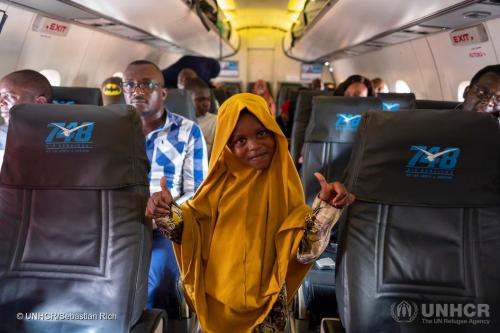
About this Handbook | UNHCR Integration Handbook
The first edition of the Handbook was compiled over a period of 18 months supported by an international task force. Individual Handbook chapters were developed in consultation with subject matter experts from the task force as well as international experts (including from academia, UNHCR, IOM, NGOs, governments, refugees). The Handbook would not have been possible without the generous financial support of the Government of Australia. More information on the development of the first Handbook can be found here and here.
The Handbook also complemented the 2002 Agenda for Protection which called on States to put in place policies to ensure that resettlement operated in tandem with sound integration policies ensuring that resettled refugees enjoy equality of rights and opportunities in the social, economic, and cultural life of the resettlement country.
The imperative to realise expanded access to third country solutions for refugees, including through resettlement and complementary pathways, is also a cornerstone of the Global Compact on Refugees (GCR) and of the multi-stakeholder Three-Year Strategy (2019-2021) on Resettlement and Complementary Pathways.
The Three-Year Strategy calls for more investment in robust reception and integration services and underlines the importance of welcoming and inclusive societies to promote solidarity, diversity, and openness. In support of the Three-Year Strategy and as the key reference text for UNHCR on the integration of resettled refugees, a special effort has been made to update the first edition of the Handbook to reflect the changing nature of integration processes and programmes. Like the first edition, the second edition is the production of a truly collaborative effort, with NGOs, governments and UNHCR staff contributing in many different ways.
The update of the Handbook was initiated under the Emerging Resettlement Countries Joint Support Mechanism (ERCM) and completed under the Sustainable Resettlement and Complementary Pathways Initiative (CRISP). With thanks therefore to the Governments of Portugal, Sweden, United Kingdom and the United States of America, who supported the ERCM and to the Governments of the United States of America and Portugal for their continued support of the CRISP.










Add new comment